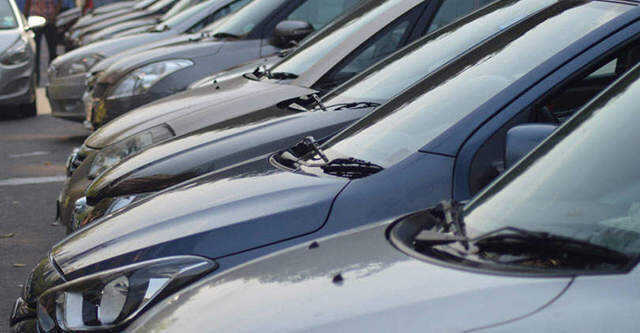
Vehicle size and road stress to determine national highways toll; new toll policy on cards


Very soon the size of your vehicle and its potential to put stress on road infrastructure will determine how much you pay as toll while moving on national highways.
A major revamp of tolling policy is on cards that would shift from the present system of toll based on fixed distance travelled on roads to one where toll would be determined on actual time and distance covered on highways.
Also, toll will be fixed on the basis of actual size and weight of vehicles and not merely on the number of axles.

The principle would be how much space a vehicle occupies on road and how much weight it puts on the infrastructure that could result in faster wear and tear of the roads, an official aware of the development said.
According to the official, the new system is being discussed for adoption by ministry of road transport and highways MoRTH and pilots may be launched in couple of the upcoming greenfield expressway projects including the Delhi-Mumbai corridor before the switch nationwide.
As part of the changeover, MoRTH has also asked IIT BHU to calculate the latest Passenger Car Unit (PCU) for various types of vehicles moving on roads and highways.

“PCU is a vehicle unit used for expressing highway capacity or how much road capacity a vehicle will use and for how long. This unit was determined several years ago and in the meanwhile the size of vehicles and its speed has undergone major changes. This will be captured revised PCU, that could also become the basis for determining toll charges on highways,” said a government official not willing to be named.
Questions send to MoRTH seeking details of the proposed changes in tolling policy remained unanswered till the time of going to press.
Mint had earlier reported that tolling may also shift from present FASTag based system to one with GPS. This would help in creating an actual user based tolling system. So, users with smaller and lighter vehicles, covering smaller distances on highways would pay lot less toll that those with bigger heavier vehicles and covering longer distances.

“Location based tolling should be introduced in phases as it would be a technological leap over the current system based on FASTag. Around 80 per cent of toll collected in India is from movement of freight by commercial vehicles and this segment should be first exposed to the changes,” said Jagannarayan Padmanabhan, director and practice leader – transport and logistics, Crisil Ltd.
“As processes stabilises, other segments could also be roped in to have a universal service for movement across the country. Technology adoption for the change is not complex or expensive. But the adoption should be gradual eliminating chances of disruptions,” he added.
In the current system, toll rates have been determined on the basis of PCU calculated earlier. Number of axles also formed one of the basis for determining toll rates. This meant that larger trucks with higher axle capacity paid more toll even if they were efficient, causing lesser damage to road while carrying higher quantities of goods at faster turnaround time.

Also, the present system of tolling does not capture the actual road distance covered by a vehicle and tolls are charged at specific toll plazas for full run even if a vehicle exits the highway earlier.
The new system will reward efficient vehicles with lower toll rates while those putting road infrastructure to wear and tear and consuming more time, occupying larger space will be charged more.
Persons quoted above said that the new tolling policy will be finalised after IIT BHU report on revision of PCU comes system in next six months. Post the report, PCU counts of various vehicles would be determined afresh. Also, location-based services would require, GPS devices on vehicles and regulations to charge toll on the basis of location will need to be finalised for which Motor Vehicles Act would need to be amended.

“Work to finalise new tolling policy is moving at quick pace and could be announced in 2023,” said the government official quoted earlier.
